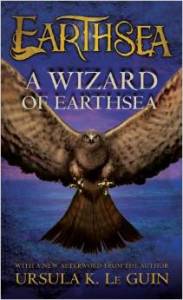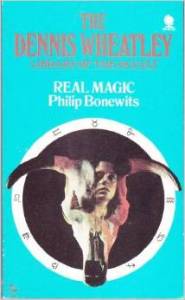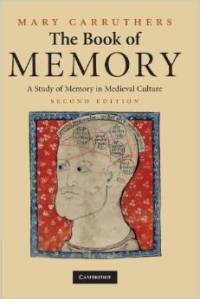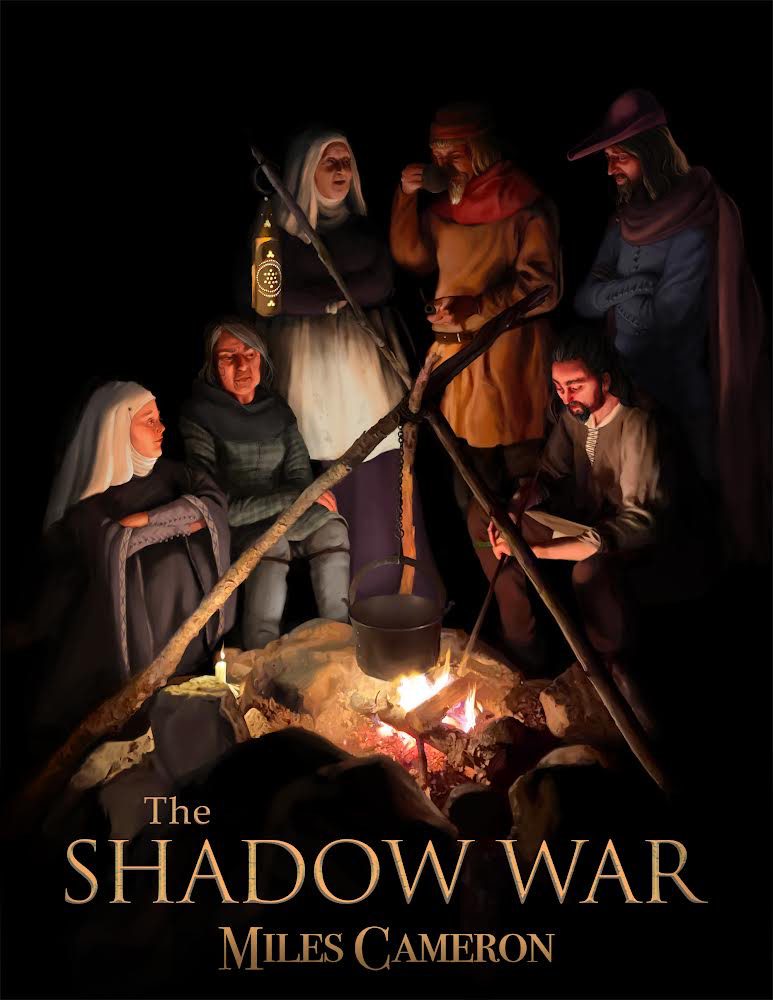As you know, if you follow this blog, I don’t see the boundaries between Historical Fiction and Fantasy as clearly as my readers (or editors) might like.
When I set out to design a magic system–oh, about thirty-five years ago, I was heavily influenced by a single book that I had just read–really, two books, one a fantasy novel, Ursula le Guin’s phenomenal ‘Wizard of Earthsea’…
….and a wonderful book which promised me, when I took it from the library at age 16, that I would be able to cast real spells. If you have never held a copy in your hands, I recommend that you buy one; it’s Isaac Bonewits‘ seminal ‘Real Magic’.
Now, those of you who read my books, or even my blog, must have discerned that I have a hands-on attitude to most things–I have to try them for myself, and magic is, I fear, no exception. As Master Bonewits laid out for me everything from a love spell (very handy for the average sixteen-year-old male) to a curse–with some exceptional advise on the shortcomings of both…
I learned a great deal from my brief enthusiasm for the occult. I learned a lot about the system; I saw clearly how important ritual was, and without any adult telling me, I suddenly saw the ‘power’ in the rituals I saw at church and how related they were to the rituals of ‘magic.’ My parent’s interest in the field that has since grown to be called ‘Performance Studies’ probably flitted in and out of my intellectual consciousness, too.
Aside from ritual, my flirtation with magic also revealed to me some of the basic ‘logics of ‘magic’.’ (Note how I am making no effort to define what magic is? Yep.) I noted that ‘like to like’, which is one of the base rules of magic, has a sort of sense to it that can run through almost everything we observe. Curiously, in my lifetime, the study of DNA, and the forensic understandings of everything from fingerprints to trace DNA, suggest that the world actually does function on a sort of ‘like to like’ and that anything you ever touched does, in fact, forever carry a blueprint of you. Funny, that.
To my mind, while JRR Tolkien and ER Eddison defined what epic fantasy would look like, and while Tolkien, in effect, established the heroic, (as opposed to demonic) mage as a standard character, neither master of the genre did much to explore magic. And I’d go further and say that to me, Ursula Le Guin did. She established a system–an organic, fairly believable system that allowed me,as a reader, to suspend disbelief and understand the powers and weaknesses of her mages. She established limitations.
A small digression. Of course, while we all like a system, I’m never happy when writers over-explain. Anyone want to tell me how the world in which we live now actually works? Please synopsize climate change since the last ice age in five sentences. Prove you are correct. Thanks. (My point is that we still have doubts, discussions and debates about fundamentals of our own world and our own universe… why expect a writer to give you all the keys of ontology and cosmology in one go?)
Anyway… in addition to books, there were role-playing games. The truth is, I designed my first magic system for a role-playing game, and both Dungeons and Dragons and ICE’s ‘Rolemaster’ rules worked easily with the concepts laid out by Le Guin and by Bonewits.
More recently, when I started to ‘get serious’ about Classics and the Classical world, and when I began to write the Historical Fiction (Fantasy?) series called ‘Tyrant,’ I had gotten interested in philosophy, and more particularly, various contentions from 19th century Germans and later philosophers about ‘Being’.
What the heck does that mean?
It means that when I decided that to make Kineas authentic and real, (whatever that means) he had to believe what other Greeks believed, not what I believe. This may seem banal to you, but it’s a hard boundary to cross. It is pretty clear to me that Greeks believed very strongly in omens and dreams–in events which, occurring in the natural world, pre-figured other events in the world of men. Astrology is the greatest survival of this system, and I was very lucky to have access to a dedicated and rather brilliant modern Astrologer, Julie Simmons, for some basic education on how Ancient Greeks might have seen the world. So… throughout the series, the gods participate directly in characters dreams; characters read auguries, watch birds, and get results. They cut open animals as sacrifices, make invocations to gods… and get results. Why? Because, quite frankly, that’s how Alexander and Julius Caesar and a number of other ancient people thought the world worked, and ‘being’ a cavalry commander in the Hellenistic world involves some belief.
So… when I came to write the Traitor Son series–to return, as it were, to the world that I’d created as a teenager, I didn’t really have to ‘reform’ the magic system. It was fairly fully realized. But I had learned a fair amount of history since age sixteen,and I had some of my own. I’d seen some magic in Africa, and I’d run across hermeticism (as above, so below, like Astrology). And then, just as I was ready to begin writing the Red Knight, I found Francis Yate’s brilliant, odd, difficult, fun book ‘The Art of Memory.’ I challenge you all to read it for yourself, but I’ll admit that all my memory palaces and my concept of the place of ritual in spell-casting came suddenly, almost full born, (like Athena from the skull of Zeus. Had to say that) from my first night’s reading. I followed Yates with Mary Carruthers (The Book of Memory and the Medieval Art of Memory)…
And my ‘system’ was changed.
That’s not me, but it is the only picture of an S-3 Viking TACCO station I could find on the web. Now, aren’t you already wondering if I’ve cut and pasted the wrong two articles together? What can this possibly have to do with the evolution of a system of magic?
In 1990, I had the great pleasure (and it was) of serving in VS-31 (the Topcats. I still have my ball cap). We were onboard the first US Navy CV to come on-station against Iraq and (way back then) Saddam Hussein, and our aircraft (designed for anti-submarine warfare, and very good at it) were suddenly pressed into service conducting somewhat impromptu electronic warfare support all along Iraq’s border with Saudi Arabia (and this was let me add, hours after Iraq’s invasion of Kuwait. ) This little moment in military history–hardly anything important–was a revelation to me, as my plucky little plane drank in signals from hundreds and hundreds of miles away and gradually, stealthily mapped the whole of Iraq’s air defence system. Some nights, we’d light off our own incredibly powerful radar system and ‘shine’ it on their surface to air missile sites… in response, they would come up–sending live signals that we could intercept, and allowing us to refine our targeting data. Other nights they would ‘go down’ as some panicked–or very realistic–Iraqi officer took his active radar off the air to avoid detection and destruction.
Now, it may appear to you that I’ve left the world of magic behind, and, it may also appear that earlier, I dissed my beloved JRR Tolkien. Neither is the case. One night, while serving my pilot some chocolate chip cookies at 8K feet over the Iraqi border, it occurred to me that Gandalf says
“If there are any to see I at least am revealed to them. I have written Gandalf is here in signs that all can read from Rivendell to the mouths of Anduin.”
― J.R.R. Tolkien
I probably spilled my coffee, it was so obvious to me that magic must work like electronic warfare. And from that moment to the moment that I understood how the aethereal might work to the understanding of a hermeticist…
OK, that another view of an S-3 Viking… on another day a year later, flying far out from the carrier over the Mediterranean, a fairly senior officer spent the time to show me how ‘ducting’ works for electronic waves–radio waves, radar, and so on, which is to say that while we all imagine that radar, for example, travels line-of-sight, under certain weather conditions, a radar signal with ‘duct’ and get trapped at a certain altitude, bouncing up and down, so that it is possible to image an object hundreds of miles beyond ‘line of sight.’ Likewise, with a sonar (the S-3 also had sonar capabilities) it was possible to detect–or fail to detect–a submarine because of specialized conditions in the water–a steep gradient in salinity or temperature can bounce a sonar signal, as all readers of Tom Clancy know.
As I write the opening pages of Traitor Son book 4 (Plague of Swords) I’m going back to this world, and I promise, without spoiling anything (I hope) a magical confrontation that will bear all the signs–and tactics–from electronic warfare, from Bonewit’s ‘Real Magic’ and from years of trying to refine the system. I want it to be rational and comprehensible. I want the reader to be able to suspend disbelief and say ‘Of course Harmodius can do that’ not ‘oh, how convenient, the nun has super powers.’
Which leads to my last comments and some more books. For the writing of fiction, everything (to me) starts with character, and not plot. So what makes the mages interesting, to me, is who they are, and not what they can do. Harmodius and Morgan Mortirmir and Desiderata and Thorn–and twenty other characters–have skills acquired through learning, and sometimes, have inborn talent as well, and I try (however ineptly) to show how those powers shape them. Can you imagine having the ability even to light a fire with magery? How would that change you as a person? How would it be if you had the equivalent of a cocked but hidden AK-47 in your mind, always available? Or looked at another way, how does it create character to study the art of memory and the exercise–the direct exercise–of power? Is it like the direct exercise of violence, as soldiers and knights learn it? Is it like science? How does it effect….everything?
And finally… or maybe first–I have always loved Merlin–born to be the anti-Christ, the son of a demon and yet refusing his evil role. The great mage, the king’s support, the wise councilor. I strongly recommend that fans of Arthurian Romance give some time to reading the Lancelot-grail reader, by Norris Lacey (well, edited by him) because these are translations of the thirteenth century French romances from which the Morte D’Artur sprang. There’s a great deal there, and I try to return to it for inspiration all the time…
But that’s another blog for another day–the Arthurian mythos and the Iliad and other tales… next week, a guest blog and some more craftsmanship that should boggle your mind, inform your reading, or help your writing.
Damn, I didn’t even MENTION Ramon Llull. Heh heh heh. Another time…











Reblogged this on parmenionbooks and commented:
… Needs no intro … Just read!
I love the magic system in the Traitor Son Cycle and this post lists most of the reasons why. Number one for me is what you said about starting with character instead of plot. Well that and the not over- explaining. Oh, and the fact that it works brilliantly in battle scenes (without ever seeming deus ex machina to me! And I’m still scared for my favorite characters, which is rare. In many books where people have power, I stop worrying at one point because I know “magic” will save them). But coming back to characters and how having magic might change people; have you ever considered writing a prequel about Gabriel or Harmodius or Desiderata or anyone with power while they were younger and first started to study and “train”? I thought about this after realizing that one of my favorite scenes in The Fell Sword was the short scene, maybe a line or two, when Gabriel remembers reading stuff that interested him rather than what his mother wanted him to read. Let me find it.
“Crossing at night isn’t even in the books – the books by Archaics on the art of war that the Red Knight had read and reread as a boy. He thought about them, and reading the strategem while lying full length in front of his mother’s fire – and while she thought he was studying a grimoire. He smiled.”
For some reason that scene and the vivid image of it my head stayed with me for days and made me smile, but also made me think about all the pressure on a young person with so much (potential) power. A friend of mine knew immediately what I was talking about when I mentioned the scene and she liked it as well. I think many people would be interested in a young Gabriel, Sophia, Amicia, Harmodius, Desiderata or Thorn. (Well, I would read a prequel about pretty much any of the characters!) Or if not a book, have you thought about writing more short stories? Readers are greedy, I know.
Every time I read one of your blogposts it makes me buy the recommended books. And it makes me want another blog about things that you mentioned. I really would love one on the Arthurian mythos. I look forward to it. Would you also include some of your favorite King Arthur books in it?
I love all the Arthurian parallels and your twists of that legend in the Traitor Son series and I hope I spotted most of them.
Maria, I hereby put my Arthurian mythos maunderings onto the blog list. But first I want to paraise Ben Kane and some other modern HF and fantasy authors, and say some things about practice and effort and expertise… When I was contracted or RK, I said I’d do a YA about Gabriel growing to adulthood. Maybe I will yet.